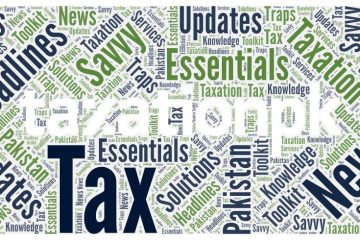A Federal Tax Ombudsman (FTO) order has revealed a potential issue where telecom operators may be quietly reducing tax deduction certificates for salaried individuals. The FTO investigation highlights a telecom company’s billing adjustment – splitting Internet Monthly Line Rent (MLR) into “Internet” and “Infrastructure,” with only “Internet” subject to Withholding Tax (WHT). This change, explained as a “structural adjustment” by the telecom company, seemingly went unnoticed by the Federal Board of Revenue (FBR).
The complaint originated from a taxpayer who received a lower tax deduction certificate than expected. The telecom company claimed the reduced tax was due to separating “Infrastructure” from taxable internet services, but failed to provide legal justification for this change to the FTO. The FTO order expressed concern over the FBR’s apparent lack of awareness and termed their inaction as potential “maladministration,” also suggesting this practice might be widespread across telecom operators. The FTO has directed the FBR to investigate the legality of this billing change and report findings within 45 days.
What Does This Mean for Taxpayers and How to Navigate This Situation?
This FTO order serves as a crucial alert for taxpayers, especially salaried individuals who use telecom internet services and rely on these tax deduction certificates for filing their income tax returns. Here’s how taxpayers can understand and navigate this situation to ensure they are compliant and not financially disadvantaged:
1. Scrutinize Your Tax Deduction Certificates:
- Carefully examine your tax deduction certificate from your telecom provider. Don’t just assume it’s automatically correct.
- Compare this year’s certificate with previous years. Is there a noticeable decrease in the deducted amount? If you haven’t significantly changed your internet usage, a substantial drop warrants further investigation.
2. Understand the Billing Components:
- Review your detailed telecom bill. Look for a breakdown of charges. Are you now being billed separately for “Internet” and “Infrastructure” or similar components?
- Contact your telecom provider for clarification. Specifically ask them to explain the components of your bill and why the tax deduction certificate is lower than expected. Inquire about the legal basis for separating “Infrastructure” and excluding it from WHT. Document all communication (emails, notes from phone calls).
3. Calculate and Cross-Check:
- Estimate your expected tax deduction. Based on your understanding of the previous tax regime (e.g., 15% of total internet payments), roughly calculate what you expected your deduction to be.
- Compare this estimate with the amount on the certificate. Is there a significant difference?
4. Gather Supporting Documents:
- Keep all your telecom bills, payment receipts, and tax deduction certificates.
- Document any communication with your telecom provider and the FBR (if you contacted them). This documentation will be crucial if you need to justify any adjustments you make to your tax return.
5. Be Cautious While Filing Your Tax Return:
- Don’t blindly accept a significantly reduced tax deduction certificate. If you believe it is incorrect based on your calculations and understanding of the previous tax regime, simply accepting it might lead to under-claiming your legitimate tax deductions.
- Consult a Tax Advisor. If you are unsure about how to proceed, or if the difference in your tax deduction is substantial, seeking professional advice from a tax consultant or chartered accountant is highly recommended. They can help you understand the legal implications and guide you on how to correctly file your tax return, potentially adjusting for any discrepancies while remaining compliant.
- Disclose Discrepancies in your Tax Return (if applicable and with professional advice): If, after investigation and professional advice, you believe the tax deduction certificate is incorrect and you are adjusting your tax return accordingly, it may be prudent to disclose this discrepancy in a note attached to your tax return, explaining your rationale and providing supporting documentation. This demonstrates transparency and can be helpful in case of an audit.
6. Stay Informed and Advocate for Transparency:
- Follow updates on this FTO order and the FBR’s investigation. The outcome of this case could set a precedent for how telecom operators are allowed to structure their billing and calculate tax deductions.
- Advocate for greater transparency from both telecom operators and the FBR. Taxpayers have a right to understand how their taxes are being calculated and deducted.
Being Careful and Proactive is Key:
This situation highlights the importance of taxpayer vigilance and the need to understand the nuances of tax regulations. While the FTO is investigating the matter, taxpayers must be proactive in understanding their tax obligations and ensuring they are receiving accurate tax deduction certificates. By carefully examining their bills and certificates, seeking clarification, and potentially consulting tax professionals, taxpayers can navigate this potentially tricky situation and ensure they file their tax returns correctly and claim all legitimate deductions. The FBR’s response to the FTO’s findings will be crucial in determining the future of tax deductions in the telecom sector and ensuring fairness and transparency for taxpayers.




